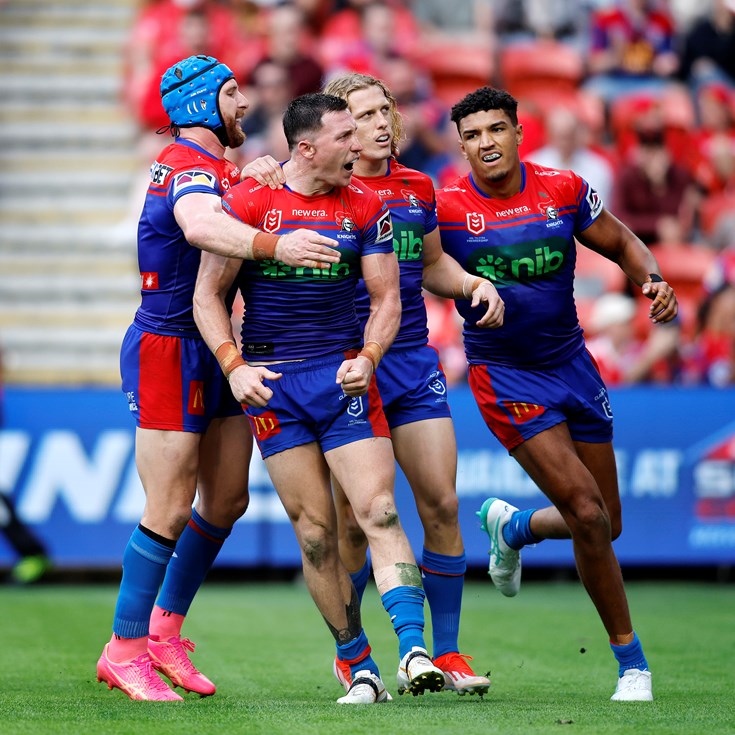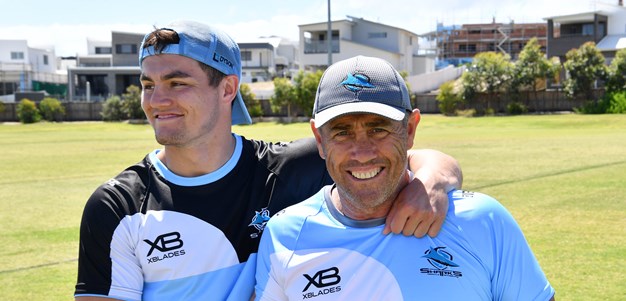A career in the NRL can be lucrative and life changing, but when the cheering stops and the rest of your life starts, players are left to question ‘what comes next?’
Given that the average career span is just 45 games, and only a select few get to spend a decade or more at the elite level, planning for life after footy takes on huge importance.
For some, the chance will present itself to stay involved in the game, whether it be in the coaching ranks or as a media personality, but for the majority of players the ‘yellow brick road’ starts to look more like a ‘no through road’.
Having devoted themselves to their sport from an early age, many players find the transition into retirement extremely tough, as former Knight, Bronco and Dragon Korbin Sims can attest.
One of five siblings, Sims grew up in the NSW south coast town of Gerringong, taking up the game as an 11-year-old because his friends were playing and brother Ashton had just debuted in the NRL with the Dragons.
Come 2008 and the tearaway teen signed with the Brisbane Broncos, going on to play in the Toyota Cup under 20s competition in 2010, where there were strict rules regarding players having to work or study while playing footy.
Being a professional athlete is a great experience but it’s not a career, so that’s why we encourage players to think about what comes next
NRL Wellbeing and Education manager Paul Heptonstall
“I always loved woodwork and woodshop in school and working outside of school with my dad I always liked having the hands-on sort of approach, as I wasn’t a studier or bookworm,” Sims said.
“I started my school-based apprenticeship as a carpenter, and it made me realise this is something that I would like to pursue.”
NRL VET Pathways: Victor Radley
Sims put his carpentry apprenticeship on hold after becoming a regular first-grader with the Knights in 2013 but when injury struck five years later during a stint at the Broncos he went back to TAFE and completed his qualification.
“I was injured and I knew I had a spell on the sidelines for what looked like 4-6 weeks so I thought ‘I am going to get this done’,” Sims said.
And get it done he did, with the support of Broncos welfare officer Adam Walsh, who identified that Sims could be signed off as a recognised tradesperson within the time frame that he was injured.
Having enjoyed his time on the tools, Sims continued to work as a chippie with Spencer Constructions while playing full-time with the Broncos.
“On my days off I would go work the eight hours, just to keep moving forward with it, and be able to have that trade behind me for when footy was done,” Sims said.
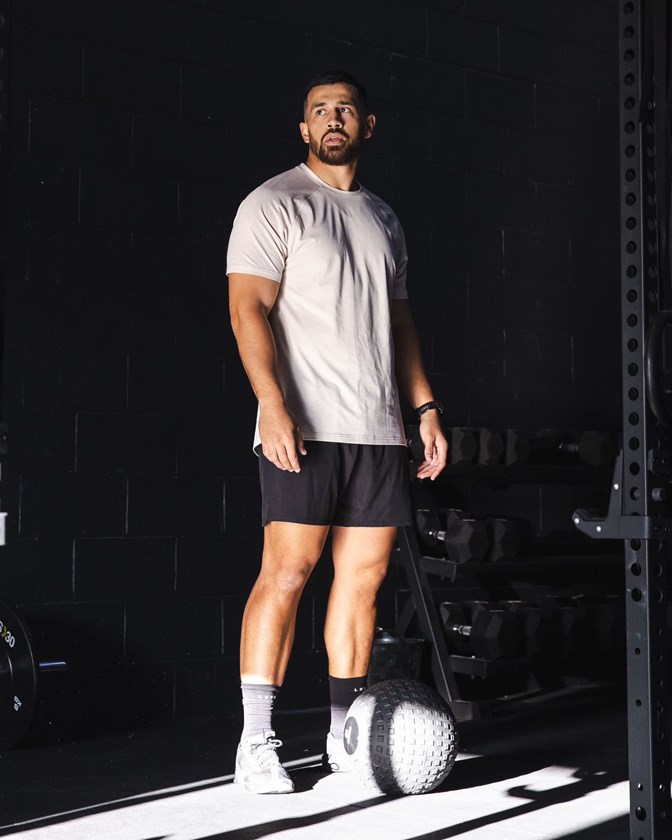
“I really enjoyed my time working there and playing footy, it really gave me a good appreciation of how good we have it playing professional rugby league.”
Having retired at the end of 2022 after two seasons with Hull KR in Super League, Sims said the transition from professional rugby league player to full-time tradie took plenty of adjustment.
“Waking up every day and not having to go to training every day but still working just as hard but on the tools was quite mentally draining,” he said.
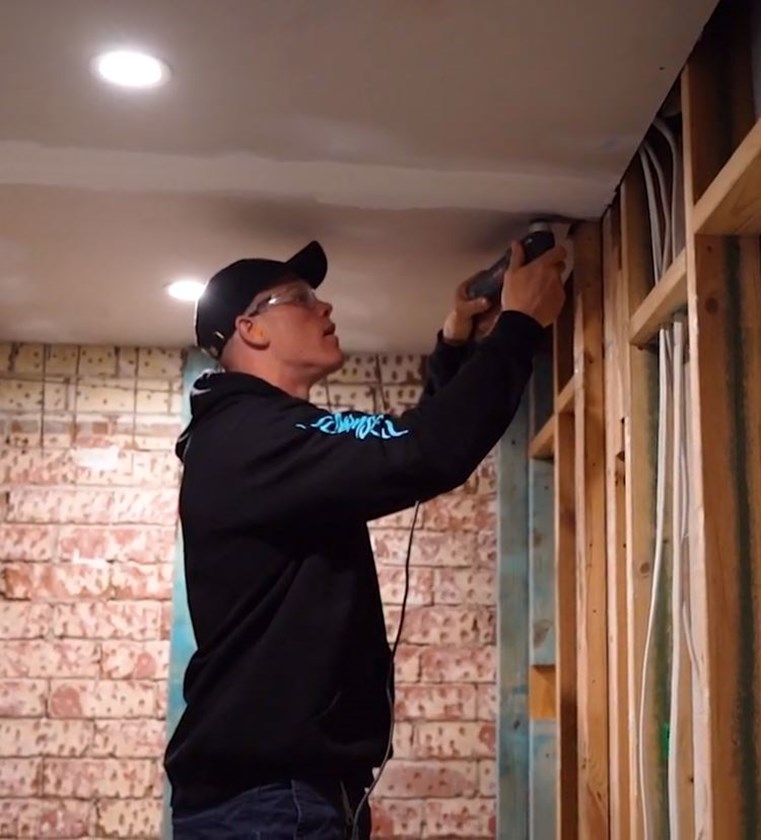
“I have had to re-learn things I had already learnt four or five years earlier. It has been a really interesting experience.”
For former Shark and Tiger Nick Graham, who played 144 games between 1992 and 2004, the transition into a post-footy career was more challenging.
As he neared the end of his career with Wests Tigers in 2004, Graham worked in an accounting firm, a job he continued with post-retirement whilst studying a Bachelor of Commerce.
After completing his degree, Graham worked as a financial planner for 12 years where he built up a successful business.
Kaufusi prepares for life after football with carpentry trade
“When I finished football, I went back and finished my degree, I went back to minimum wage which is a big shock,” said Graham, who admits he thought his next career role would just ‘come to him’.
“That self-employed aspect there you have to start from scratch again, so I was like, ‘hang on I thought I got over this’.
“You’ve given pretty much 10 years away [to footy], you’re a 30-year-old and you’re working on the same wages and career paths as 18 and 19 year olds,” he said.
“So unless you’ve built up good assets, or a profile, you’re really starting again, and that really shocked me.
“You know people aren’t going to give you that hand up so much anymore.”
For retired players like 2015 Broncos grand final winger Jordan Kahu, the transition was made even tougher by the COVID pandemic.
Kahu played the last of his 116 NRL games in August of 2020, a year after setting up his own media company ‘Chur Media’.
The tech-savvy Kiwi had completed an IT course early in his career while sidelined by back-to-back knee reconstructions, spending time analysing data from Broncos games when he couldn’t be part of the action himself.
NRL VET Pathways: Millie Boyle
Back on the field and finally making his NRL debut in 2013, Kahu found his real passion was creating content of his own.
“It wasn’t really until I found that Go-Pro and started making videos, I wasn’t posting them or sharing them anywhere, I was just making them for the fun of it,” Kahu said.
“The first year [of Chur Media] we chewed through all our savings because obviously my last year in the NRL we all had to take that pay cut due to COVID, so what was supposed to be my highest earning year just got cut in half, which was pretty disheartening.
“COVID had just smashed the world and being a photographer/videographer, it wasn’t considered essential, so it was tough.”
Without a steady income, Kahu admits he found the going tough, but with the world opening up again he was able to set up meetings, build a loyal client base for his merchandise and content, and branch out into gym ownership on the Gold Coast.
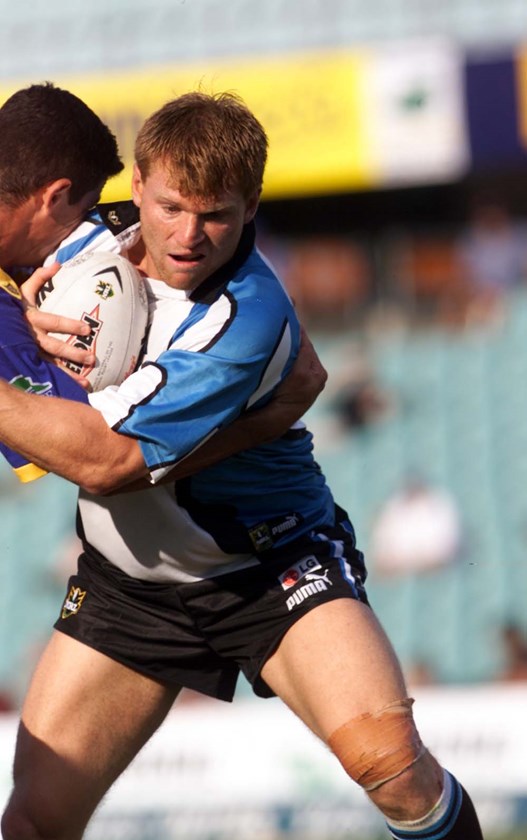
It’s the sort of positive outcome that NRL Wellbeing and Education manager Paul Heptonstall would like to see for all the players he tries to assist.
There are currently programs in place at all clubs to help players undertake study or start an apprenticeship, with a total of 60 wellbeing staff employed across the 17 clubs.
“We mandate career coaching for players and we mandate that players who are 20 years or under must do something one day a week outside of football to try and broaden that identity,” Heptonstall told NRL.com.
“That’s any player in the Top 30 and development list, even if you are earning a million dollars, you must be doing something one day a week outside of football to be eligible for selection.
“Our research shows that if a player is doing something outside of football that they are more often selected every single week, they have longer contracts with the club and that their careers are longer.
“We know statistically through validated research that it works, and that is why the whole tough love thing is really important for us.
“We also know that those players transition much smoother after football if they have this identity outside of football.
NRL VET Pathways: Melbourne Storm
“When players retire the hardest thing to deal with is the transition from being a professional athlete to a normal person in society and that’s why we work so hard on trying to get players to do something outside of footy.
“Every year about 55 players retire [from the NRL] and most of those don’t know they’ve played their last first-grade game, and every year 55 new players come in, and that hasn’t changed in the past 15 years.
“Around 17 per cent of the players who debut each year play less than 10 career games so the message to players is to make the most of the programs put in place by your club and utilise your welfare and education managers.
“Being a professional athlete is a great experience but it’s not a career, so that’s why we encourage players to think about what comes next.”
